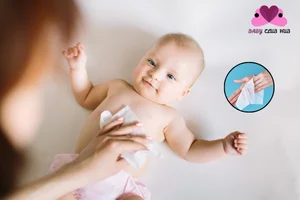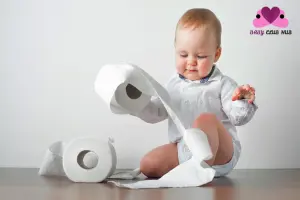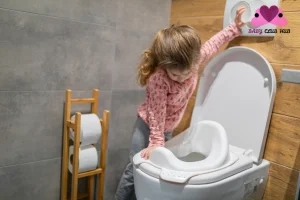10 Must-Have Newborn Items Every Parent Needs
Bringing a newborn home is one of life’s most magical experiences — but it can also feel overwhelming. With so many baby products on the market, it’s hard to know what you really need and what’s just extra.
To help simplify things, we’ve put together a list of 10 must-have newborn essentials every parent should have on hand. These items aren’t just “nice to have” — they’re game-changers that make feeding, sleeping, changing, and soothing your baby a whole lot easier.
Whether you’re building your baby registry or preparing for your little one’s arrival, this guide has you covered.
1. Newborn Diapers and Wipes
Let’s start with the most obvious — diapers and wipes. You’ll go through 8–12 diapers a day in the first few weeks, so stock up!

- Choose between disposable and cloth diapers depending on your lifestyle.
- Look for hypoallergenic wipes that are gentle on newborn skin.
Related Article: Top 10 Best Diapers for Baby
Pro Tip: Keep a small diaper caddy stocked with diapers, wipes, and cream in each major area of your home — especially near your bed and the living room.
Related Article: 5 Best Baby Wipes – Gentle, Safe & Parent-Approved Picks
2. Swaddle Blanket
Swaddling helps soothe newborns by mimicking the snug environment of the womb. It reduces the startle reflex and helps babies sleep longer.
You can choose from:
- Traditional muslin swaddles (great for warmer weather)
- Velcro or zip-up swaddles (perfect for first-time parents)
Why it’s essential: A good swaddle means better sleep for both baby and parents.
3. Onesies and Footed Sleepers
Newborns spend most of their time sleeping — so comfort is key.
- Look for soft, breathable cotton clothing.
- Zip-up footed sleepers are lifesavers for nighttime diaper changes.
- Add a few side-snap or kimono-style tops for babies with healing umbilical cords.
How many do you need? Around 7–10 onesies and 5–7 sleepers to cover spit-ups, blowouts, and laundry gaps.
4. Baby Carrier or Wrap
Wearing your baby helps with bonding, calms fussiness, and keeps your hands free to get things done around the house.
- Choose a soft wrap for the newborn stage (e.g., Boba or Moby Wrap)
- Or a structured carrier with newborn insert (like Ergobaby)
Bonus benefit: Babies love being close to your heartbeat — it soothes them almost instantly.
5. Breastfeeding or Bottle-Feeding Supplies
Whether you plan to breastfeed, bottle-feed, or a combination of both, here’s what you’ll need:
For breastfeeding:
- Nursing pillow for comfort and support
- Nipple cream for sore days
- Breast pads for leaks
- Breast pump (manual or electric)
For bottle-feeding:
- Newborn-size bottles (slow-flow nipples)
- Bottle brush and drying rack
- Formula, if needed
Optional: A bottle warmer and sterilizer can make things even easier.
6. Bassinet or Newborn-Safe Crib
Your baby needs a safe place to sleep — and the AAP recommends babies sleep in the same room (but not the same bed) for at least the first 6 months.
- Choose a bassinet with breathable sides for peace of mind.
- Or go with a crib that grows with your baby and converts into a toddler bed.
Don’t forget a firm mattress and fitted crib sheets — no pillows, bumpers, or blankets for safety.
7. Changing Station Essentials
You don’t need a fancy changing table, but you do need a setup that keeps everything within reach.
Here’s what to include:
- Changing pad with washable covers
- Diaper cream (look for zinc oxide-based ones for rashes)
- A diaper pail to manage the smell
- A small basket or caddy for organizing
Safety tip: Never leave the baby unattended — even for a second.
8. Newborn Bath Supplies
Bathing a tiny newborn can be nerve-wracking, but having the right gear helps.
Must-have items include:
- Infant bathtub or bath support for sink use
- Gentle baby wash and shampoo
- Soft washcloths and hooded towels
- A rinse cup or hand-held sprayer for easy rinsing
Stick to 2–3 baths per week in the early weeks to protect delicate skin.
9. Pacifiers and Soothers
Pacifiers can help calm fussy babies, especially in the early weeks. They’re also associated with reduced risk of SIDS when used during sleep.
Tips:
- Try different nipple shapes to see what your baby prefers
- Use BPA-free, one-piece pacifiers for newborns
- Keep extras on hand — they disappear easily!
Note: Some breastfeeding experts recommend waiting a few weeks before introducing a pacifier to avoid nipple confusion.
10. Thermometer and Baby Health Kit
Your baby’s health is your top priority, and having a few essentials at home can help you manage minor issues or know when to call your pediatrician.
Items to include:
- Digital rectal thermometer (most accurate for infants)
- Nasal aspirator or suction bulb
- Baby nail clippers
- Gas relief drops or gripe water
Also good to have: baby-safe laundry detergent, a soft hairbrush, and a gentle skin moisturizer.
Final Thoughts
There’s a lot to prepare when bringing home a new baby — but focusing on the essentials will reduce stress and make your early days much smoother.
From diapering to sleeping and everything in between, these 10 must-have newborn items are tried, tested, and trusted by parents everywhere.
Remember, you don’t need every fancy gadget. Focus on comfort, safety, and convenience, and you’ll have everything you need to give your baby a great start — and keep your sanity intact.
FAQ: Must-Have Newborn Items
How many newborn diapers should I buy?
Expect to go through 8–12 diapers per day. Start with a couple of small packs before stocking up — babies grow fast!
Should I buy newborn-size clothes or go straight to 0–3 months?
Get a few newborn outfits for the first couple of weeks, especially if your baby is under 8 pounds, but most babies fit 0–3 months soon after birth.
Is a bassinet necessary, or can I use a crib from day one?
You can use a crib from day one as long as it’s safe and meets sleep guidelines. Bassinets are great for smaller spaces and easier nighttime feeds.







